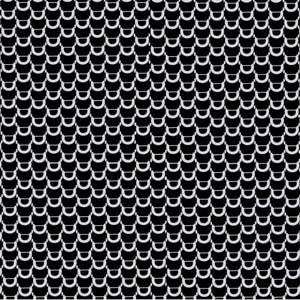
 back
back
| Dungen |

| artist : | Dungen | |
| album : | Tio Bitar | |
| Dungen - Tio Bitar | ||
| Dungen took longer to catch on than your average overnight sensation. In 2004, momentarily existing outside the micro-managed Web 2.0 landscape, the band shouted a hearty Swedish "surprise" with their excellent Ta Det Lugnt. It may have been the language barrier-- or the fact that the collection was released by Subliminal Sounds, a smallish Stockholm-based label known as much for its exotica/cocktail bent as for its underground psych fetish-- but the group seemed to come out of nowhere, with little advance word or ground-level buzz. Of course, we're talking stateside reception. At home in Sweden, they'd already undergone a post-major label backlash (and, after flourishing elsewhere, a sheepish critical rebirth). Since those days of relative anonymity, though, Dungen have toured extensively as a four-piece, reissued and reconfigured older material, and connected with the New York-based Kemado label, who in 2005 issued a super-sized Ta Det Lugnt. Despite the flurry, Dungen's reputation still rests on that one gem of a record in its original, slimmer state: The early material wasn't that great, and the extras included on the deluxe edition felt gratuitous. Now, three years after that album's first release, Dungen has issued Tio Bitar, album number four. Worth the wait? Well, bad news first: There's no "Panda". But then, it's a different, imperfect monster: Tio Bitar explores the mellower side of psychedelia, working largely as the dusk-backdropped counterpoint to the band's earlier fireworks. Dungen mastermind Gustav Ejstes has spent the past few years studying fiddle with a Swedish master, and while it adds another distinctive layer to the group's distinguished sound, its omnipresence lends the album a decidedly different feel. Perhaps the album's strangest attribute, though, is how even a few of the best songs here-- excluding, of course, tracks like "Gör Det Nu" or "Du Ska Inte Tro Att Det Ordnar Sig", on which the band unequivocally succeeds-- come off as something gorgeous in the background, rather than the in-your-hair, fist-pumping rockers Dungen seems to have intended. The record opens extraordinarily with "Intro", a fried stage-setting rocker that massages one of guitarist Reine Fiske's majestically distended, havoc-wreaking guitar lines (and extended chords) through repeating flutes and busybody drums. As counterpoint, the next track, "Familj", is pleasantly airy, an afternoon Dungen pastoral that could go on forever. Then, the band summons stormclouds with the blustery, thundering "Gör Det Nu", echoing "Intro" in sheer fret magick, and shredding off any remembrance of its golden-skied predecessor. But, perhaps acknowledged by its title (Tio Bitar translates as "10 Pieces"), the album doesn't always congeal. One song may uncharacteristically plod while the next overreaches. Most of its tracks are brief-- six clock in under four minutes, one above eight-- but while the tracks weren't much longer on Ta Det Lugnt, they all felt titanic. Granted, Tio Bitar's aesthetic pull aims for somewhat different horizons than the last album's larger, more energized sound, but-- tough love, guys, tough love-- where even Ta Da Lugnt's verdant instrumentals hooked talons into you, a few of these suites slide past like water off a duck's back. Instrumentally, of course, the album is airtight. Its loose, colorful sunbursts of bright fiddle, guitar, organs, drums, tambourines, and flute find the band perhaps at their most technically proficient to date. In promotional material, we're reminded Dungen is basically the omni-instrumental Ejstes accompanied by guitar ace Reine Fiske, and here, Fiske's leads are the stars: Despite the band's overall move toward a quieter gentleness, his guitars cook with a unrestrained, Hendrixian sizzle. The drums, too, have their colossal moments-- especially when twisting out seismic rolls on "Svart Är Himlen". (Who's the more fun multi-instrumental drummer, Mascis or Ejstes?) Still, chops alone can't salvage the midtempo "Ett Skäl Att Trivas", which sounds and feels like Dungen, but, with its lifeless drums and soporific bassline, bores very much unlike Dungen. Or, the one gigantic track, "Mon Amour", which recedes into extended soloing, forgoing the band's usual, admirable restraint for the kind of hippie self-indulgence they've always managed to transcend. Even given these disappointments, though, the record is far from a dramatic departure from the band's previous outings-- you'd certainly never mistake it for another band-- and its few missteps are well balanced by a handful of blissful, seismic bright pockets. Just be ready for its late-afternoon haze: Leave your acid on the porch and grab the bong instead (Source:www.pitchforkmedia.com) (Roger Rey) |